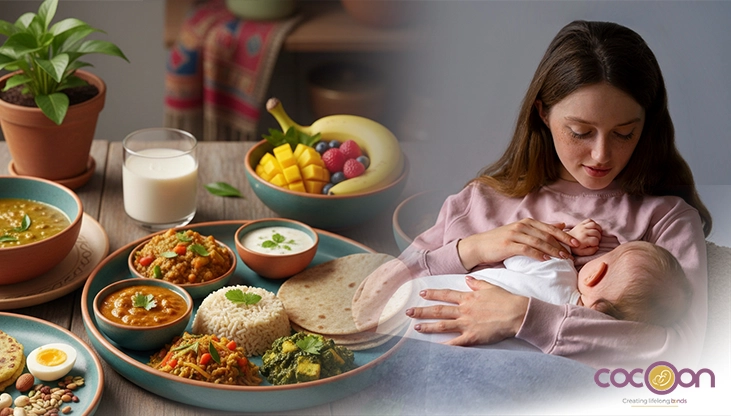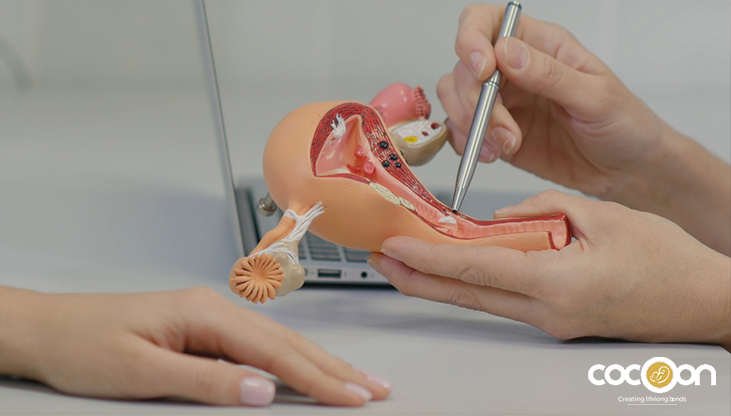Pregnancy is a period of change. Your body changes, your routine changes, and your plans for the future begin to get bigger. But one thing that tends to surprise many first-time mothers is just how emotional the experience can be.
Some days you'll be walking on air - elated, thrilled, and radiating joy. Other days, you may feel stressed, annoyed, or even blue without any obvious reason. If that's the way it's been for you lately, take comfort in knowing you're not alone. These emotional highs and lows are an entirely normal pregnancy occurrence.
Why Do Emotions Change During Pregnancy?
When you're pregnant, your body is working on creating a tiny human, and that takes a lot of energy and adjustment. A big part of this transformation is driven by hormones—chemical messengers that help guide your organs and systems through the changes. Hormones prepare your body for the baby, but they also influence your mood.
Two of the key hormones that rise during pregnancy are estrogen and progesterone. These are vital to maintaining a healthy pregnancy, but they can also bring on intense emotions .You might find yourself crying over a movie you've watched dozens of times or feeling unexpectedly furious when someone forgets your favorite snack. These emotions will feel sudden and over-the-top, but they are absolutely normal.
Also, it's not all hormones. Pregnancy introduces a lot of new ideas and concerns. You might be thinking about whether you'll be a good parent, how your life will be different, how the birth will be, or whether the baby will be healthy. These are valid concerns, and it's fine to have a combination of joy, fear, hope, and doubt—all in one day.
What Kinds of Emotional Changes Can Happen?
Pregnancy emotional changes are not uniform for all but can be characterized by these basic ones shared among many women:
Mood Swings
At one point, you could feel elated while, the very next minute, you will cry. Normally harmless things will have a monumental, unbearable connotation. All such quick changes of mood would create confusion but prove to be characteristic of this pregnancy process in many women.
Worry and Anxiety
It's normal to feel concerned about your baby, your health, your future, or how you'll manage everything. Some anxiety is usually there, but if you're always feeling anxious and it's hard to feel like you can enjoy anything, it's worth talking to someone about.
Feeling Tired or Overwhelmed
Pregnancy can be draining. Your body is working hard, and you might find yourself tired most of the time. To boot, preparing for the baby, going to doctor's appointments, and making lifestyle adjustments can feel overwhelming.
Excitement and Joy
Let's not lose sight of the good part! The moment when you first feel your baby move or visualize having your child by your side can overflow your heart with joy and excitement. Such feelings are also just as necessary and can propel you on even the dark days.
Moments of Sadness
Some women are sad or cry a lot when they're pregnant, and that's okay. But if you find that you're feeling low more than half the time, or you just don't care about things that you normally enjoy, you might be suffering from something more severe such as prenatal depression. Don't hesitate to seek help—it does make a big difference.
How to Deal with Mood Swings and Emotional Changes
Now that we know why emotions go up and down during pregnancy, let's discuss how you can look after your emotional wellbeing. You should feel supported and relaxed as much as you can during this time. The following are some easy tips that can help:
1. Talk About Your Feelings
One of the best things about dealing with emotions is to speak them out. Tell your feelings to your partner, a best friend, your mother, or someone you trust. Simply uttering your thoughts can make them less burdensome. You don't have to keep everything bottled up.
2. Don't Be Too Hard on Yourself
Pregnancy is not the time to be a perfectionist. It's alright to take time out, say no to others, and prioritize what's best for you and your baby. Release the need to do everything "right." There isn't a perfect way to be pregnant—just your way.
3. Take Time for Yourself
Even if only for 10 or 15 minutes daily, take a little time for yourself. Listen to music, read a book, take a leisurely walk, or just lie down and rest. These little moments can soothe your mind and boost your mood.
4. Stay Active (If You Can)
Light physical activity like walking, stretching, or prenatal yoga can really help with emotional balance. Exercise makes your body release feel-good chemicals that reduce stress and improve your mood. But always check with your doctor before starting anything new.
5. Get Enough Rest
Sleep is one of the most powerful tools to heal both your body and your mind. Try to go to bed at the same time each night and take short naps during the day if needed. If you’re having trouble sleeping, using extra pillows or trying calming bedtime routines can help.
6. Eat Healthy
What you eat has an impact on how you feel. Make sure to eat balanced meals packed with fresh fruits, vegetables, whole grains, and protein. Keeping yourself hydrated also maintains your energy levels and keeps you feeling better emotionally.
7. Reduce Stress
Not everything is up to you, but you can decrease stress in little ways. Practice breathing exercises, listen to soothing music, or journal. If it feels too much, seek assistance. Don't do it by yourself.
When Should You Seek Help?
While mood swings are a normal part of life, sometimes the emotions can be more intense. If you experience any of the following symptoms, it's a good idea to speak with a doctor,:
- You're sad or hopeless most of the time.
- You're not finding pleasure in anything—even things you previously enjoyed.
- You're having trouble eating, sleeping, or paying attention.
- You're constantly feeling afraid or experiencing panic attacks.
- You're thinking about injuring yourself or not living.
It takes courage to seek help, not weakness. Taking care of your mental health is as important as taking care of your physical health—for you and your baby.
Supporting Each Other
If you’re a partner, friend, or family member of a pregnant woman, your support matters a lot. Simply listening without judgment, being patient, and helping with small tasks can make a huge difference in her emotional journey. Encourage her to rest, talk about her feelings, and seek help if needed.
Conclusion
Pregnancy is a time of great change—not just physically, but emotionally too. It's normal to feel many different things in a single day. Some emotions may surprise you. Others may challenge you. But all of them are part of this powerful and beautiful journey of bringing new life into the world.
What's most important is that you don't do it by yourself. Talk to the people you love. Ask questions. Take time to nurture your heart as much as your body.
You're creating a whole human being—that's no little feat! Be gentle with yourself, trust your instincts, and remember that you're doing your best. Your feelings are valid, your well-being is important, and you are never alone on this path.

















